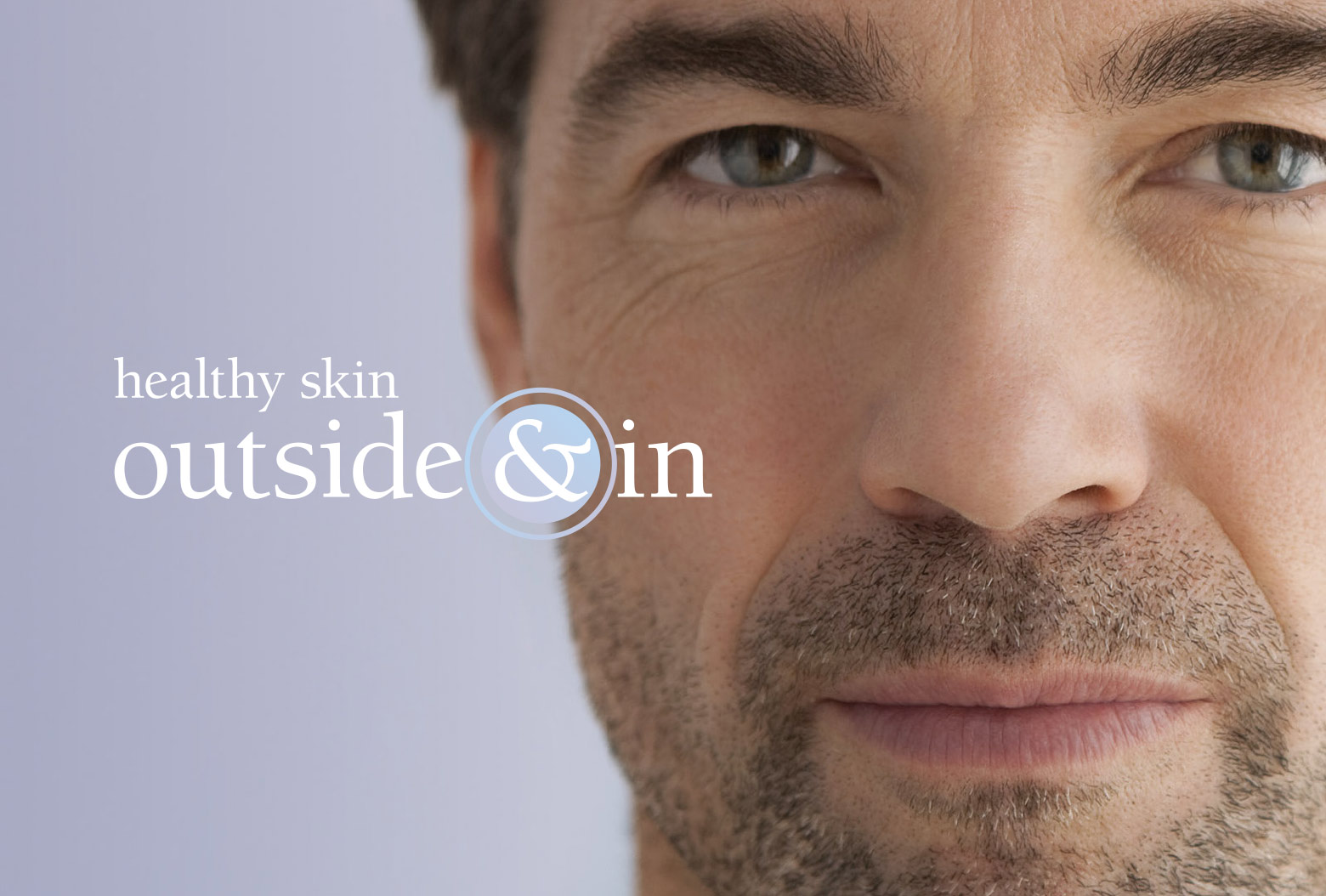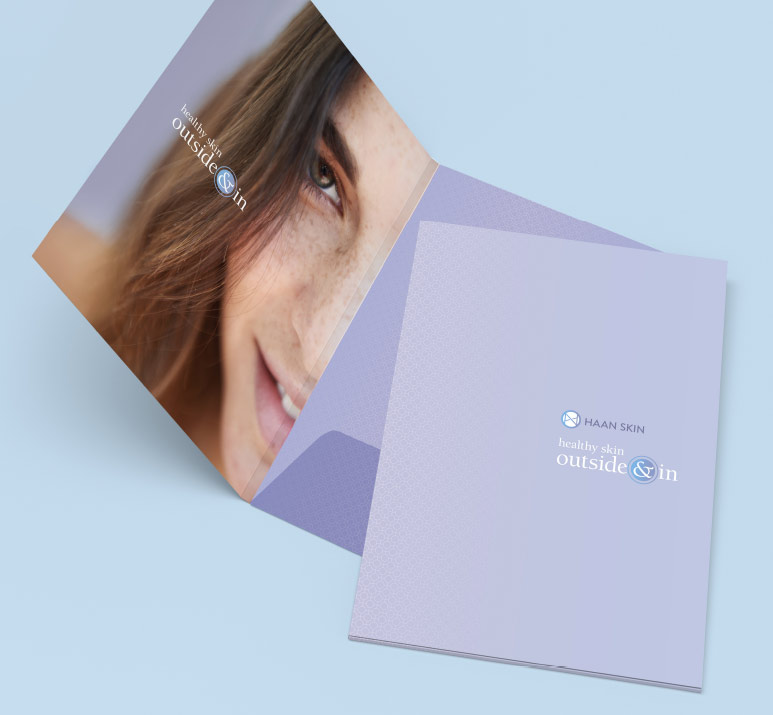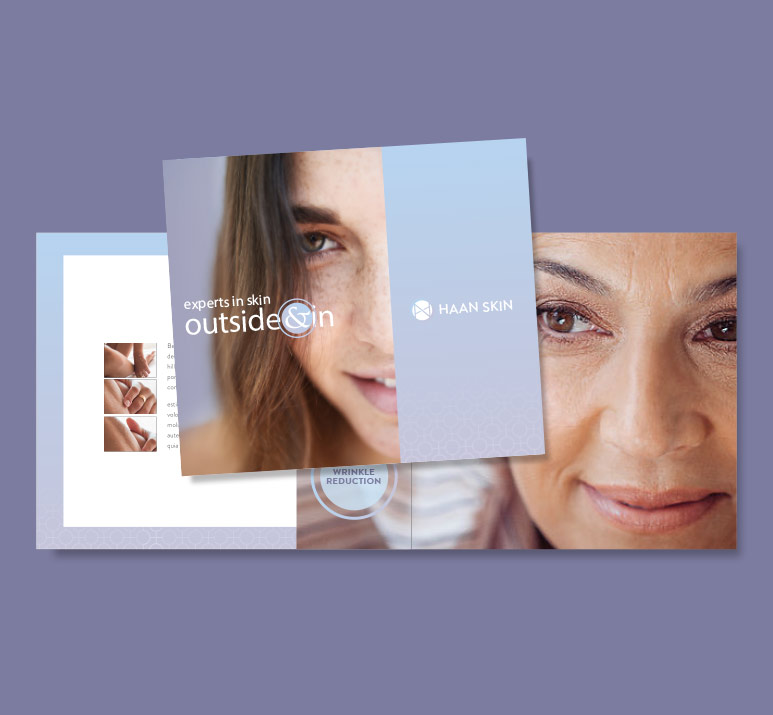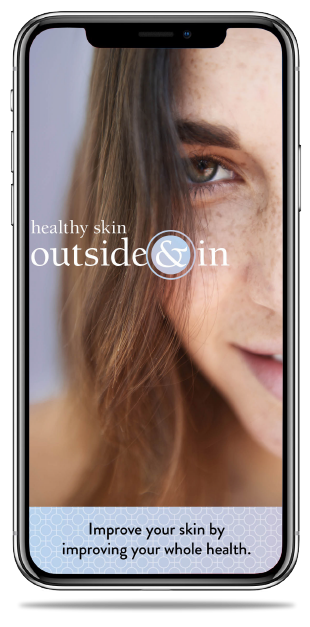Haan Skin
Good skin comes from good health.
Haan Health wanted to create a new offering around skin care, but, they wanted to differentiate from the existing providers in a very crowded market. As a medical clinic, the obvious market expectation was low-margin skin cancer checks.
Sin has already helped position Haan as a whole-body health focused business, so this was the perfect opportunity to expand that into skin health. The trick was breaking the traditional perceptions surrounding skin treatments by being inclusive of everyone.
Industry
The challenge - A new business that didn’t fit existing models
The business of looking after your skin has been largely dominated by three different competitor types:
1. Cosmetic beauty, such as cosmetic surgeons, day spas, high profile cosmetic brands and anti-ageing, etc. This business model attracts those motivated by vanity, by promising youth and beauty.
2. Medical clinics, promoting skin cancer checks, focused on customers who are concerned with moles and are scared of cancer. They often use serious and confronting messaging to scare customers into the door for a check up.
3. Dermatology, dealing with skin conditions, such as eczema, psoriasis, acne, dermatitis, etc. Often the brand is aligned with skincare product promotion and uses before/after imagery. It attracts those with skin ailments by promising treatment and cures.
But what about everyday people? Those daunted by luxury medi spas but hate their crowsfeet. Those who don’t realise they have skin conditions, so they never query it with their GP. Or those have a fear of bad diagnoses or invasive check ups or cancer, so stay away?
And what about those people who have no idea that other health issues are affecting their skin?
Sin realised there was a market gap just waiting to be filled.
Every person has skin issues. The goal was to motivate everyday people who would never have done anything about their skin.
Your skin tells a story
The new brand did not sit in any of the mainstream categories of Cosmetic Beauty, Dermatology or Skin Cancer / Medical.
The brand story was all about skin health, and our new positioning line; “healthy skin outside and in” deliberately raised awareness about the largest organ in our body. Our skin health affects our body health and vice versa. For trained experts, issues with health can often be seen in a person’s skin.
By positioning Haan’s skin services as symptomatic of general health, Sin opened the business model to a wider demographic with a message of “We can improve your skin by improving your whole health,” by looking outside and in for the core of the problem to provide ongoing relief.
Brand Story Board
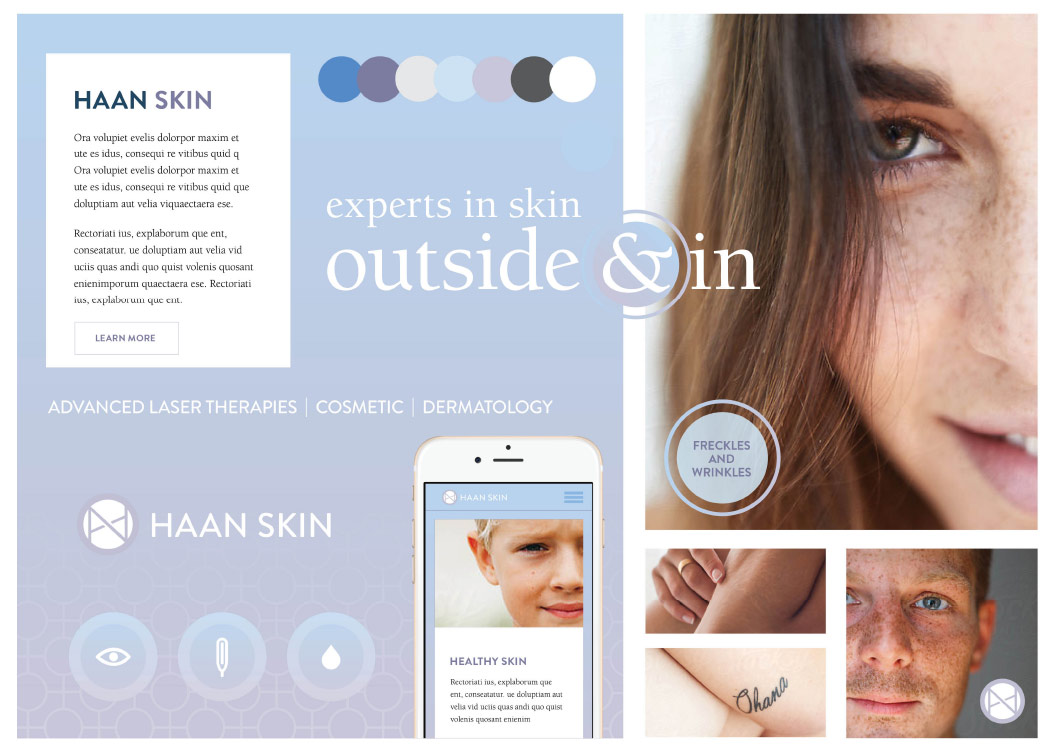
Real people, real skin
The imagery reinforced the brand position of beautiful outside and in, by showing real skin in all its varying beauty. It also used a wide demographic of people and ages to help reinforce the idea that skin health is neutral of age or gender.
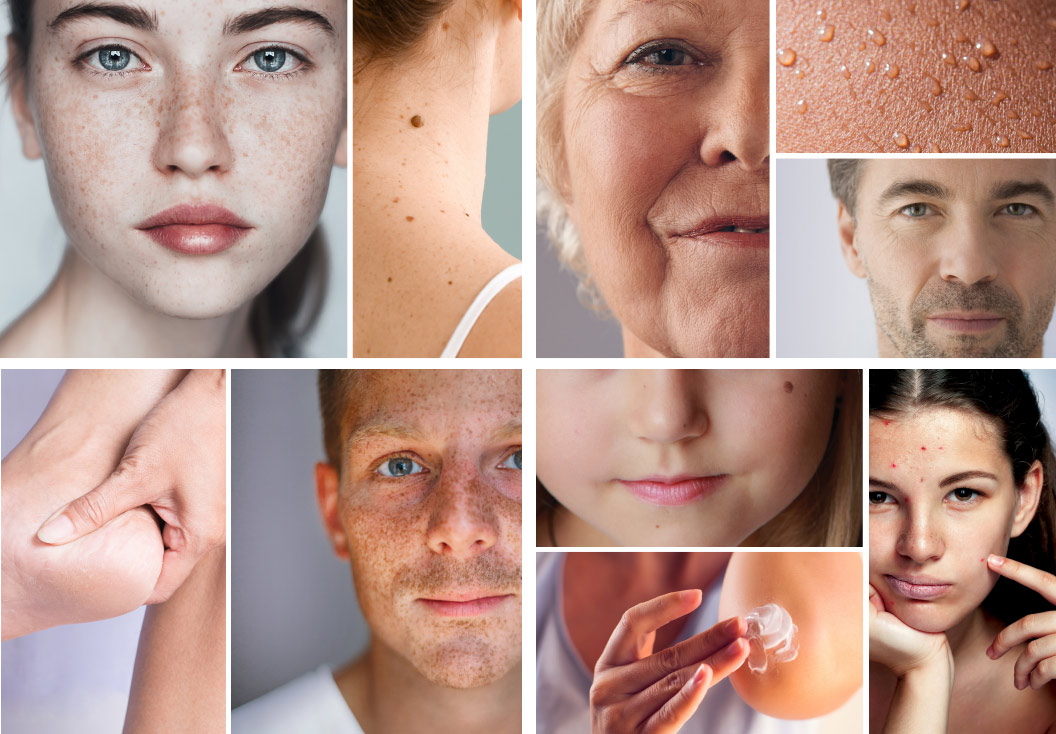
Skin science meets skin care meets skin health.
A sign of good skin health
Sin designed all the signage and exterior graphics for Haan Skin clinics, following the brand story and focusing on skin health rather than clichéd images of perfect beautiful women.
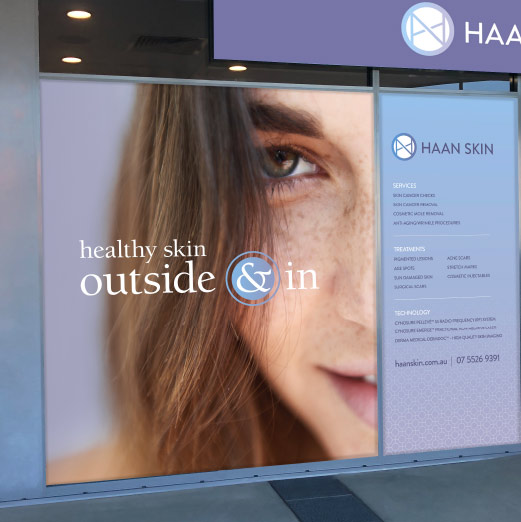
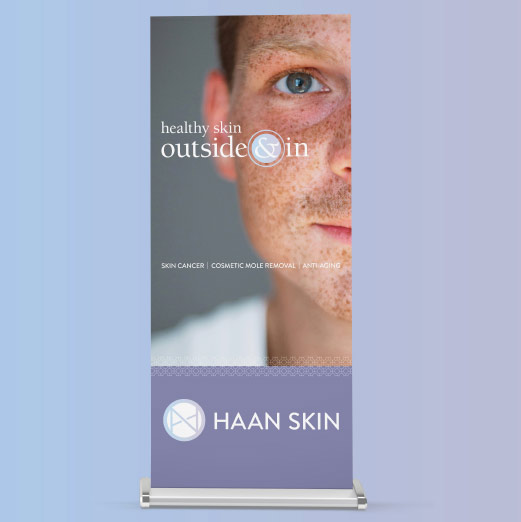
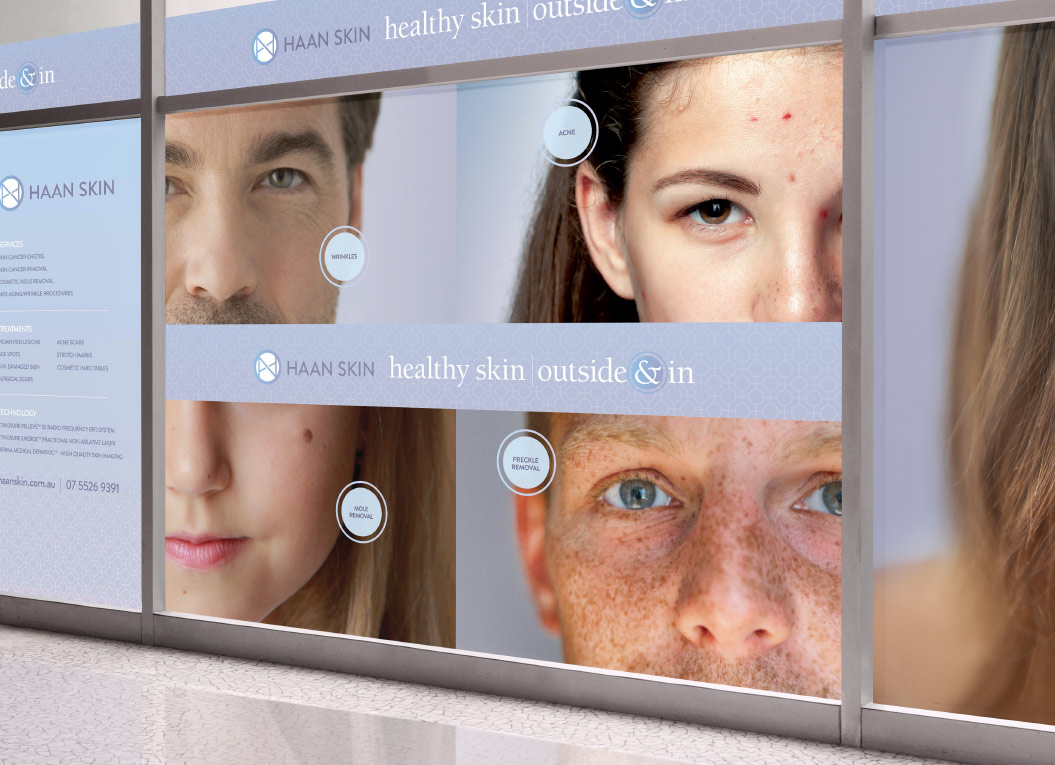
A healthy success story
For nearly a decade Sin has helped brand and market the multiple offerings within the Haan Health group, building on the well known brands with each new service.


